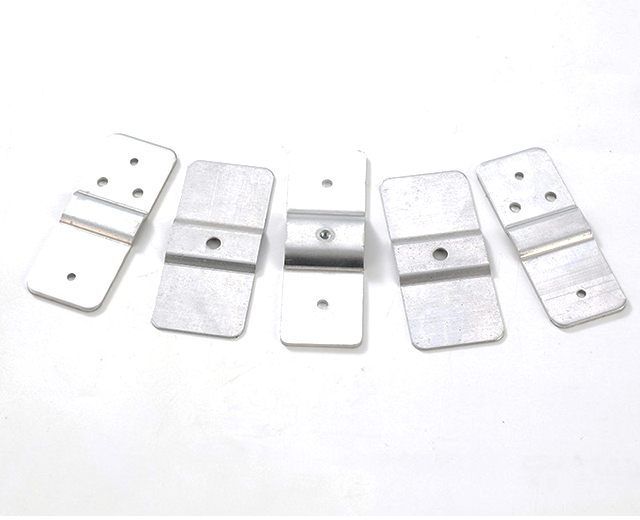2025-10-23 09:59:45
In the rapidly evolving electrical and energy industries, Flexible Busbar systems are becoming increasingly essential for connecting components where vibration, movement, or limited space are major concerns. Designed for high current capacity and mechanical flexibility, Flexible Copper Busbar and braided busbar solutions provide engineers with superior electrical performance and durability.
Whether used in industrial switchgear, EV batteries, or renewable energy systems, flexible busbar copper products deliver safe, efficient, and compact power distribution.

A flexible busbar is an advanced conductor made of multiple thin layers of copper or aluminum foils, laminated or braided together, providing both electrical conductivity and mechanical flexibility. Unlike traditional solid copper bars, flexible types can absorb vibration, reduce mechanical stress, and allow for movement between connected parts.
Flexible Copper Busbar assemblies are ideal for environments where reliability, space optimization, and safety are critical—such as data centers, EV power modules, or industrial automation systems.
The laminated copper busbar is constructed by stacking multiple copper foils separated by thin insulation layers, then laminated under high pressure.
Excellent electrical conductivity and heat dissipation.
Compact design suitable for high-current, low-inductance applications.
Common in inverters, rectifiers, and power converters.
A braided busbar or flexible braided copper busbar is made by weaving fine copper wires into a flexible strap or rope-like form.
High flexibility and vibration resistance.
Ideal for connections that require frequent movement.
Often tinned to prevent oxidation and improve contact reliability.
The insulated flexible busbar or insulated flexible copper bars are coated with materials such as PVC, silicone, or epoxy, which provide dielectric protection and enhance safety.
Prevents short circuits and accidental contact.
Suitable for compact electrical cabinets or EV battery assemblies.
Flexible copper busbars combine mechanical adaptability with high electrical efficiency, offering several critical advantages:
Superior Conductivity: Made from high-purity copper for low resistance and high current carrying capacity.
Excellent Thermal Performance: Dissipates heat effectively, preventing overheating in power systems.
Compact and Space-Saving: Allows dense electrical layouts without compromising safety.
Vibration Absorption: Reduces wear and tear caused by mechanical or thermal movement.
Customizable Design: Flexible copper busbar manufacturers can tailor shape, hole size, insulation, and connection type to customer requirements.
The most common materials for flexible busbar copper include:
Electrolytic Tough Pitch (ETP) Copper (C1100): For high conductivity and cost efficiency.
Tinned Copper: Provides corrosion resistance and longer lifespan.
Silver- or Nickel-Plated Copper: For demanding high-temperature or corrosive environments.
Manufacturing methods vary between flexible copper braid (woven or knitted) and laminated copper busbar (foil-stacked and compressed), depending on mechanical and thermal demands.
Used in battery interconnections, flexible busbar copper allows safe current transfer with excellent vibration resistance.
In robotics and motion systems, flexible copper braid ensures stable current transmission despite continuous movement.
Insulated flexible busbar systems enhance electrical cabinet safety and simplify installation.
Laminated copper busbars support solar inverters and energy storage systems requiring compact, efficient conductors.
Enable compact, high-current connectivity in limited spaces while reducing heat and electromagnetic interference.
Partnering with professional flexible copper busbar manufacturers ensures:
Precise customization (shape, insulation, hole size, current rating).
High conductivity materials meeting IEC and UL standards.
Quality insulation materials (PVC, silicone, Nomex).
Comprehensive testing for mechanical strength and dielectric safety.
As experienced flexible busbar manufacturers, we specialize in producing flexible copper busbar, braided busbar, and laminated copper busbar solutions that meet global standards for electrical safety, efficiency, and durability.
| Parameter | Specification |
|---|---|
| Material | High-conductivity Copper (C1100) / Tinned Copper |
| Cross Section | 10 mm² – 1000 mm² |
| Voltage Rating | Up to 1000V AC / DC |
| Temperature Range | -40°C to +125°C |
| Insulation Options | PVC, Silicone, Epoxy, PET |
| Length & Hole Size | Custom according to customer drawings |
The flexible copper busbar family—including flexible copper braid, braided busbar, and laminated copper busbar—represents the next generation of electrical connectivity. They provide unmatched flexibility, safety, and efficiency for power distribution across industries.
Whether you need insulated flexible copper bars for EV battery systems or laminated flexible busbars for industrial control, partnering with trusted flexible copper busbar manufacturers ensures you receive durable, high-performance solutions tailored to your project’s needs.